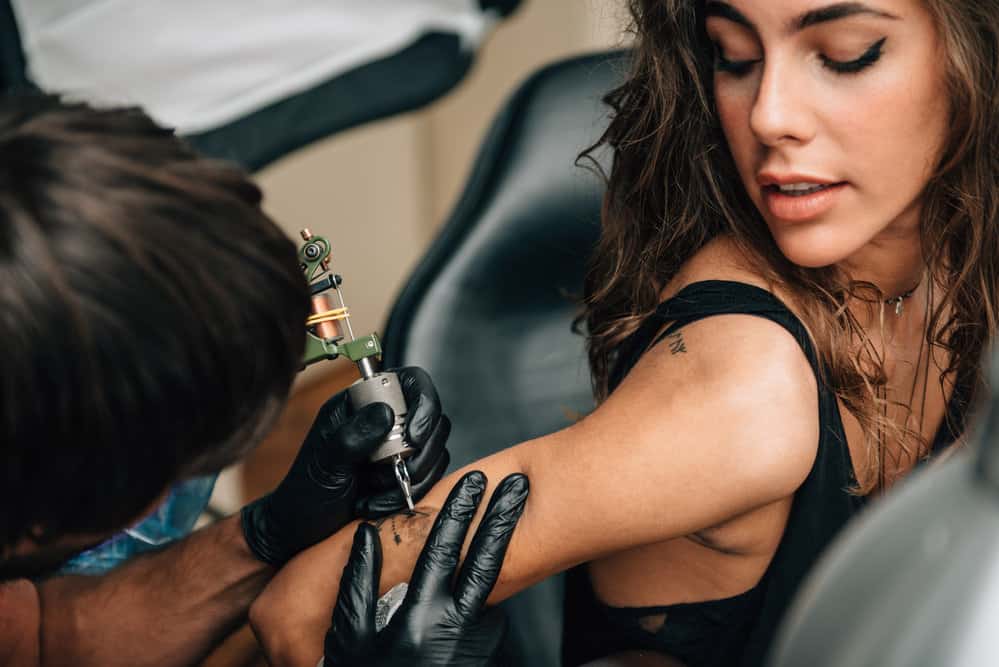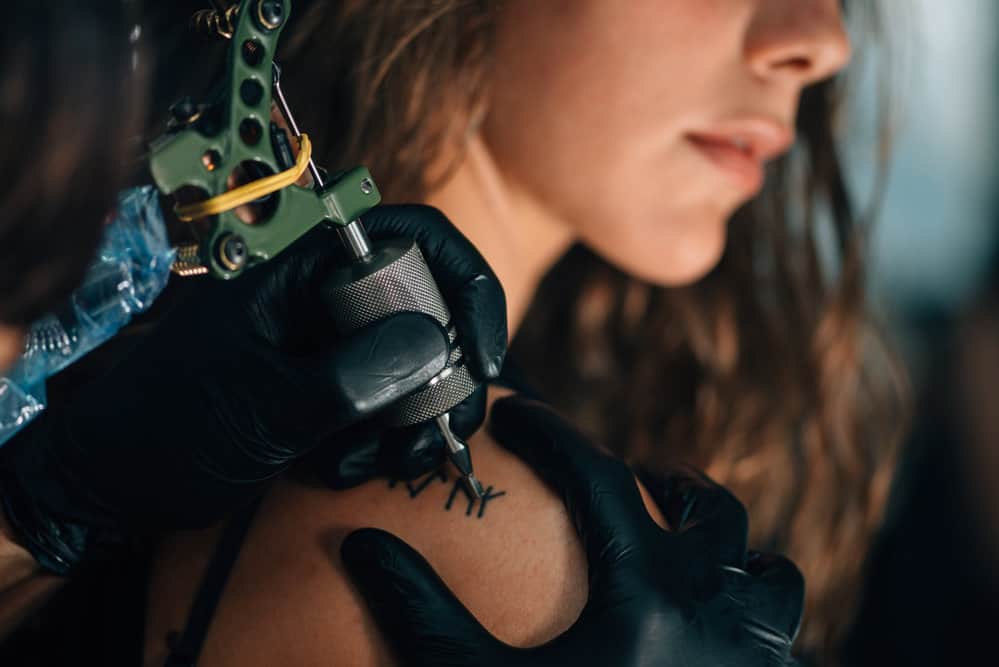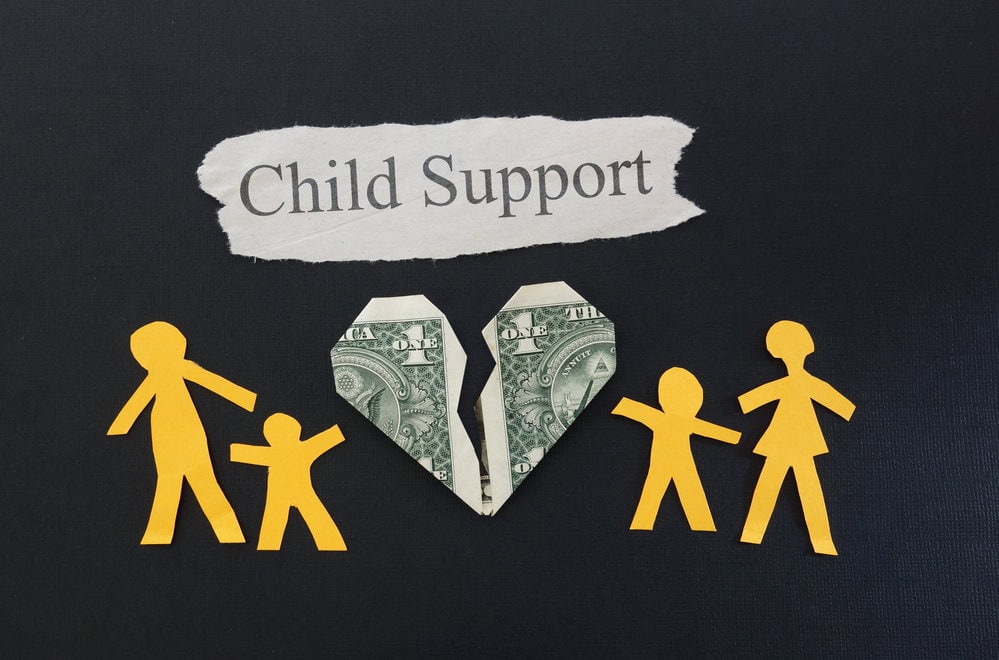Getting a tattoo is a significant decision, often involving careful consideration and planning. As tattoos are designed to be permanent, it is essential to understand the legal aspects of the process, such as the minimum age requirements, which vary depending on the location. This article aims to provide a comprehensive overview of the age restrictions for obtaining a tattoo.
In many countries and states, the legal minimum age to get a tattoo is 18 years old. However, some jurisdictions have exceptions that allow minors to receive tattoos with parental consent or under specific circumstances. These age limits ensure that individuals have the maturity and understanding to make informed decisions about permanently altering their bodies.
It is crucial for those considering a tattoo and tattoo artists to familiarize themselves with the local laws and regulations concerning age restrictions. This helps prevent legal complications and ensures a positive tattoo experience for all parties involved.
Legal Age Requirements for a Tattoo by Country
United States
In the United States, the legal age to get a tattoo varies from state to state. While most states require individuals to be 18, some states allow minors to get a tattoo with parental consent. Here is a list of some states and their respective age requirements:
- California: 18 years old, no exceptions
- New York: 18 years old, no exceptions
- Florida: 16 years old with parental consent
- Texas: 18 years old, parental consent for minors allowed in some cases
It is essential to research the specific regulations in the state where one plans to get a tattoo.
Europe
In Europe, the legal age for getting a tattoo varies by country. Some countries have a specific age requirement, while others are more lenient and require parental consent. A few examples include:
- United Kingdom: 18 years old, no exceptions
- Italy: 18 years old, 16 with parental consent
- Germany: 18 years old, 16 with parental consent
- France: 16 years old with parental consent
Asia
Regulations in Asia differ significantly, with some countries having strict age limits and others being more lenient. Some notable examples are:
- China: 18 years old, no exceptions
- Japan: 20 years old, no exceptions
- South Korea: 18 years old, no exceptions
- India: No specific age limit, but generally 18 years old
Australia
The legal age for getting a tattoo in Australia is 18 years old, with no exceptions. However, specific tattoo regulations can vary across territories and states, so it’s essential to research the local laws before proceeding.
Factors Affecting Tattoo Age Requirements
Government Regulations
Different countries and states have their age requirements for getting a tattoo. In some places, the legal age to get a tattoo is 18, while in others, it might be 16 or even lower. Therefore, individuals and tattoo artists need to familiarize themselves with the laws in their region to avoid any legal consequences.
Parental Consent
In some locations, minors under the legal age can still obtain a tattoo with the permission of a parent or guardian. The consent is usually provided in written form and may need to be notarized. Parental consent laws vary by jurisdiction, with some areas requiring consent for minors up to 18 years old and others only requiring it for those under 16.
Studio Policies
Tattoo studios and artists may have age restrictions, even if the local government does not enforce a set age limit. Insurance requirements, professional ethics, or artist preferences could influence these policies. Potential clients should consult with the tattoo studio they are considering to determine if any additional age requirements are in place.
Health Considerations for Younger Individuals
Skin Growth and Tattoo Distortion
Younger individuals should be cautious about getting tattoos due to their skin growth and potential tattoo distortion. As their bodies grow and change, tattoos can stretch or become distorted, leading to an undesired appearance. Therefore, they must wait until their bodies have stopped growing to minimize this risk.
Allergies and Skin Sensitivity
Younger skin may be more prone to allergies and skin sensitivity. Inks used for tattooing can potentially cause allergic reactions or skin irritations. Ensuring the individual has no allergies to the ink ingredients is necessary. A patch test before tattooing can help identify possible allergies and avert complications.
Long-term Regret
Lastly, younger individuals may be more likely to experience long-term regret regarding their tattoo choices. Therefore, getting a tattoo should be well-thought-out and carefully considered. Factors to contemplate include:
- Design: Is the chosen design something they will be happy with for a lifetime?
- Placement: Will the tattoo location affect future job opportunities or social situations?
- Artist: Has the individual researched an experienced, reputable tattoo artist?
Considering these health factors and potential long-term consequences, younger individuals can make more informed decisions about pursuing a tattoo.
Frequently Asked Questions
How old do you have to be to get a tattoo?
In most countries, the minimum age to get a tattoo is 18. Some regions or states may have different age requirements or allow minors to get tattoos with parental consent. It is essential to research and follow the local laws in your area.
What are the risks of getting a tattoo at a young age?
Tattoos are permanent, and getting one at a young age may lead to regret later in life. Younger individuals might not fully understand the implications of a lifelong decision. Additionally, the body is still developing, and a tattoo can change or distort as it grows.
Can a minor get a tattoo with parental consent?
In some regions or states, minors can get tattoos with parental consent. However, the rules may vary, and specific age limits might be set, such as being at least 16 years old. Always confirm the regulations in your area, as unauthorized tattooing can lead to legal fines.
Are there any exceptions to the minimum age requirement for tattoos?
Though rare, some jurisdictions may allow tattooing for medical purposes, such as reconstructive surgery or medical-alert tattoos. In these cases, the minor would likely require parental consent, and a medical professional might need to be involved.
Is it safe to get a tattoo from an unlicensed artist?
Getting a tattoo from an unlicensed artist increases the risk of infections, diseases, and poor-quality work. Professional and licensed tattoo artists adhere to strict health and safety guidelines, ensuring your tattoo experience is safe and enjoyable.
What are the potential legal consequences for minors getting a tattoo without parental consent?
Minors who get tattoos without parental consent may face legal consequences such as fines, community service, and even juvenile detention. It’s important to always get parental consent before getting a tattoo if you’re under 18.
Are there any health risks associated with getting a tattoo, regardless of age?
Yes, there are potential health risks associated with getting a tattoo. These risks include infection, allergic reactions, and scarring. To minimize these risks, it’s important to go to a reputable tattoo artist who follows proper safety and hygiene practices.
How can individuals find reputable tattoo artists in their area?
Individuals can find reputable tattoo artists in their area by researching online, reading reviews from previous customers, and checking the artist’s portfolio. It’s also important to ask the artist about their experience, training, and safety practices before getting a tattoo.




